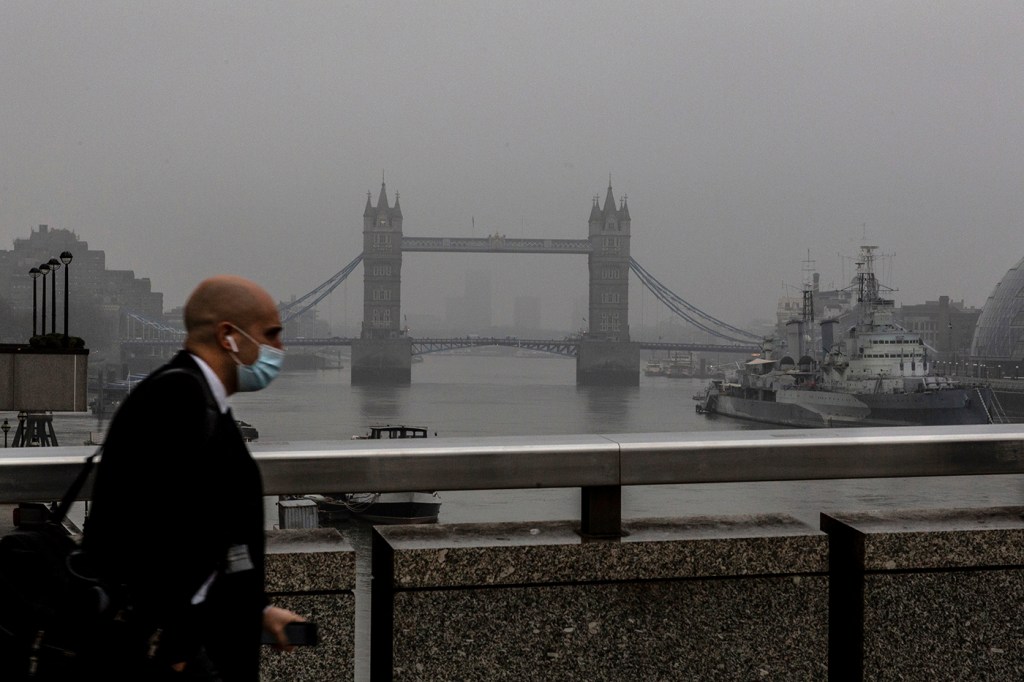UK reopening plan may offer framework for the US

It has been a nightmarish 12 months for United Kingdom Prime Minister Boris Johnson, who led the troublesome Brexit negotiations that concluded in December while struggling with his nation’s response to the COVID-19 pandemic.
But Johnson is hoping for a brighter future. The COVID-19 vaccine rollout in Britain has delivered at least one inoculation to more than 40 percent of its population—a rate much higher than that of the U.K.’s former partner, the European Union. On March 8, based on confidence that vaccinations will quell the pandemic, Johnson’s government launched a highly detailed reopening plan for the U.K. economy.

Left, Stephen Dnes, an assistant professor in law at New College of the Humanities at Northeastern in London. Right, Yaprak Tavman, an assistant professor in economics. Courtesy photos.
This is not the first time Johnson has tried to reopen during the pandemic; other attempts resulted in shutdowns as the coronavirus renewed its spread.
Will Johnson’s latest plan serve as an example for other nations, including the United States?
“This time the government is much more cautious about the reopening,” says Yaprak Tavman, an assistant professor in economics at New College of the Humanities at Northeastern in London. “The main idea is to ensure that this will be the last lockdown, because the closing and restarting of the economy can be quite difficult for businesses and households.”
More than 126,000 people in the U.K. have died from COVID-19.
In early March, the first of the U.K.’s four reopening stages enabled a full return to classrooms by all students, including those in college. The next phase begins March 29 when outdoor gatherings of six people (or two households) will be permitted. People are still being asked to work from home if possible, and overseas travel remains limited.
The staggered reopening will continue with an incremental loosening of restrictions throughout April, May, and June. The government has created a pause of at least five weeks between stages, enabling COVID-19 data to be collected and analyzed before the next phase goes forward.
Tavman anticipates a full U.K. economic recovery by the second quarter of 2022. COVID-19 caused a decline in gross domestic product of 9.9 percent in 2020—Britain’s greatest drop in more than three centuries, and the worst slump among the world’s seven largest economies during the pandemic.
Tavman notes that the British economy is highly urbanized, and that its shopping areas, known as the High Street, have been effectively shut down by the pandemic. Will those retail businesses reopen to full strength—or will the shift to online shopping be permanent?
“It will also be interesting to analyze how much long-term damage there has been to the U.K. economy,” Tavman says. “We expect to observe some scarring because businesses haven’t been investing in the economy.”
The reopening might lead to legal questions of liability, says Stephen Dnes, an assistant professor in law at New College of the Humanities at Northeastern in London. Could a city or town be sued for reopening while the coronavirus remains a threat?
“There was a case in Austria, where someone who caught COVID went on a skiing holiday and sued the town,” Dnes says. “They were saying the town should have been locked down, which is quite an aggressive claim. In English law, you need to show a duty of care and carelessness in breach of it.”
But legal jeopardy remains, he adds. “In practice, it will be quite hard to defend against a claim if someone comes along and says, ‘You didn’t have enough cleaning in place,’ or ‘You weren’t enforcing the social distancing,’ ” says Dnes. “There are plaintiffs’ lawyers who will be only too happy to bring those cases, even if people are making their best efforts.”
Because governments are focused on reopening their economies, which depends largely on the success of mass vaccination campaigns, Dnes wonders how personal data is being allotted to drug companies.
“Pharmaceutical companies have been conditioning some of the vaccine deals on getting access to personal data,” Dnes says. “That data could be very invasive—it might be your medical history, or aspects of it that would allow someone to work out your medical history. That’s a very big issue on the radar.”
For media inquiries, please contact Shannon Nargi at s.nargi@northeastern.edu or 617-373-5718.






